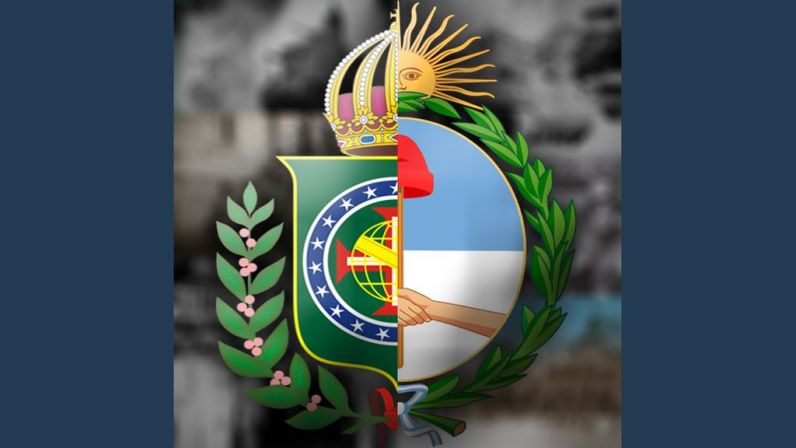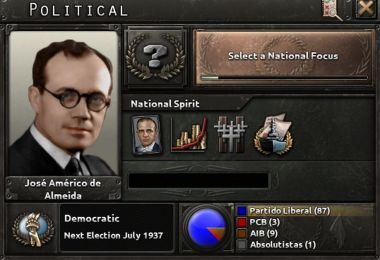Mod «War of the Burnt Coffee» for Hearts of Iron 4 (v1.9.1)

In 1922, tensions between Argentina and Brazil grew, caused by the dispute for influence between the two countries in Uruguay. At first hand, only a few economic restrictions were taken, but over the course of the year the problems were increasing, especially after the Argentine government discovered a plan between Brazilians and the Uruguayan colorado party for the seizure of power in the country, since the dominant party, the blancos, were in favor of the Argentines. The Brazilian government denied the allegations and tightened diplomacy with Argentina.
In 1923, during the Uruguayan election the Colorado Party emerged victorious, but Argentina accused Brazil of having manipulated the elections in their favor, several demonstrations against the Colorado government took over the country. In the silver basin, a Brazilian ship loaded with coffee was passing through Argentine waters and, because of tensions, the ship was hit by Argentine submarines without warning, this on September 7, 'Independence Day of Brazil'. With these events, Brazil was taken by a spirit of war and fury against the Argentines, pro-war demonstrations circulated in the main capitals causing the government to be pressured to declare war. After struggles and many deaths, the Brazilians emerged victorious in the battle of Rósario, opening doors for a breakthrough in the Plate River, which forced the Argentine government to sign a peace agreement.
After these events, Brazil, even though victorious, came out destroyed by the war and with the population completely paralyzed and incredulous with the terror of the modern war, this causing the Brazilian government to rethink its policies of influence in the world.
Argentina was a possible candidate to be a power within the continent in the early twentieth century, to follow this path Argentina needed to expand its influences across the South American continent. In 1919 the Blancos were elected in Uruguay with the help of Argentina, with promises coming from the Blancos from various trade treaties between the two countries.
The victory of the Blancos in Uruguay also meant a problem for another country, Brazil. The Empire of Brazil was already a great nation recognized by the whole world, its influence was one of the strong points defended by the Conservative Party that was in power during the election of the Blancos, this meant the initiative of several measures against the Argentines. After some events the tension between Argentina and Brazil increased, mainly in 1923 when the Colorados, who supported Brazil, won the election of Uruguay, the Blanco Party and Argentina denied the election of the Colorados accusing them of being fraudulent, this because foreign support in campaigns. Then, on September 7, 1923 after a Brazilian merchant ship was sunk, the war was declared.
After many deaths the Argentine situation was not good, the Argentine president would not accept a peace treaty, even after the defeat in Rosario, the population was furious and the army tired. The Argentine Vice President was willing to enter into a treaty with Brazil. With the support of the Argentine congress, part of the army and the Brazilian government, the vice president gave a coup d'état, the result was a success and a peace treaty was signed.
Currently Argentina has gone through several difficult times, the country is in chaos, the economy is broke and elections are near.







